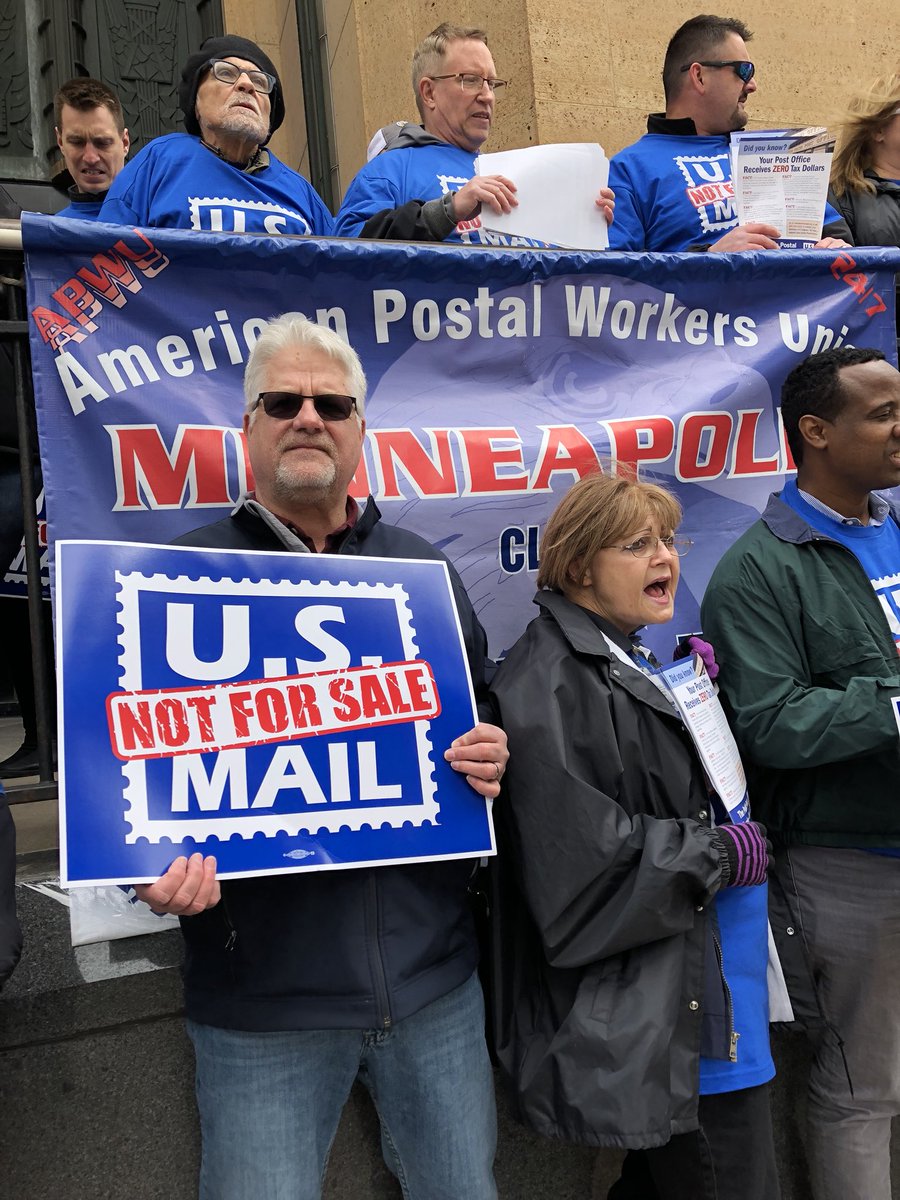

Share
The American Postal Workers Union (APWU) held over 100 rallies on Tax day to fight attempts to privatize the postal service privatization. Rallies also emphasized that the postal service is not taxpayer funded.
“Our message to the public is quite simple. ‘The United States Postal Service—Keep it. It’s yours!'” said Mark Dimondstein, president of the American Postal Workers Union (APWU), in a statement. “Don’t sell this national treasure to private interests that will charge more for less service.”
In Minnesota, postal workers and letter carriers rallied outside the downtown Minneapolis post office.

The union also just released a video entitled “We Deliver Almost Anything.”
To explain the looming threat, the U.S. Mail Not for Sale campaign, a project of APWU and the National Association of Letter Carriers, states:
On June 21, 2018, the White House’s Office of Management and Budget (OMB) released a restructuring proposal for the federal government. The proposal, “Delivering Government Solutions in the 21st Century,” delivered misinformation without ever consulting the United States Postal Service (USPS) and, if implemented, would end regular mail and package services at one affordable price, delivered to all 157 million addresses six days a week—regardless of geographic location. The OMB proposal takes direct aim at the USPS under the guise of reforming and structuring for the 21st century.” […]
The White House USPS Task Force Report, released on Dec. 4, outlines the first step of the OMB’s privatization proposal—restructuring the USPS to fatten it up for sale.
Rejecting the task force report, Dimondstein wrote last month:
Recommendations like shuttering post offices, reducing delivery days, and relinquishing the sanctity of the mail that mailers and household have come to trust and rely upon are unlikely to be the commercial panacea the task force suggests they may be.
Indeed, rising costs and worsening service would hasten the public’s retreat from the Postal Service, leaving higher costs for those left behind. It’s a classic death spiral scenario and should be rejected by everyone—mailers, organizations, and regular household users—that relies on the Postal Service’s affordable, nationwide network to market, exchange goods and information and conduct their affairs. It should be especially concerning to the most vulnerable across the country, especially those in rural and remote areas, the poor and underserved and veterans who especially rely on postal delivery of life-saving medicines.
Instead of setting the Postal Service up for failure, we believe that lawmakers, postal management, and other stakeholders should aim for a more robust, faster, smarter, and more valuable Postal Service. We all ought to ensure that the Postal Service remains truly essential for decades to come. Doing so requires visionary leadership about the role the postal system plays in the collective life of the country and in finding new ways of fulfilling the long-standing mission of the Postal Service to “bind the nation together.”

